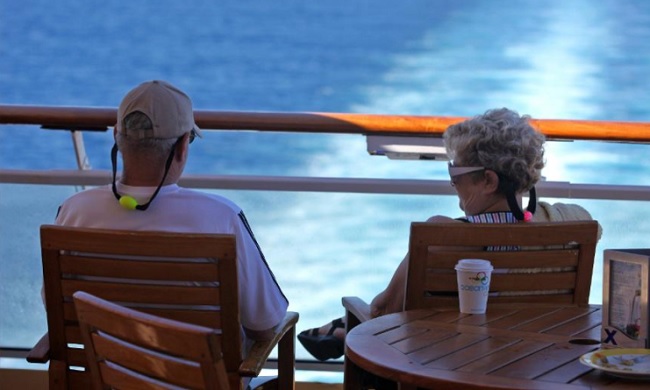U.S. residents living abroad often cobble together different types of health plans
As the number of U.S. retirees living overseas grows, more of them are eventually faced with a dilemma: go home for Medicare coverage, or pay cash where they are.
Sixty-seven-year-old Ohio native Karen Schirack, who has lived in San Miguel de Allende, Mexico, for 20 years, slipped and broke her left femur in multiple places last January. She could have gotten surgery near Ajijic to repair her fractured thigh bone and replace her hip. Or she could have been airlifted back to the U.S. for surgery and rehab.
Medicare rarely pays for care outside the United States. And private insurance policies and national health plans in other countries may not provide the kind of quality, affordable care that retirees expect, writes Kaiser Health News.
To cover herself against incidents like these, Schirack did what many do, cobbling together different types of insurance, including Medicare:
- She pays about $3,700 annually for an insurance policy through Allianz that covered her surgery at a private hospital in Guadalajara.
- She also has a medical evacuation policy that would have paid for her flight to the States, if she had opted for that. That policy costs roughly $3,000 for five years.
- And she pays for Medicare Part B, which she can use for care when she visits family in the United States. (The standard Part B premium is $135.50 monthly.)
By July, Schirack no longer needed home nursing care and wrapped up months of physical therapy in June. Although she has a scar running from her waist to the middle of her thigh, she hopes to be back to normal with another five more months of healing.
Her private plan paid about $20,000 for her surgery. Schirack had to cover her portion of the total, about $2,400, and bills for other expenses, including blood transfusions, before leaving the hospital.
After discharge, she was responsible for paying for other services — home nurses, physical therapy, medications — and submitting receipts to the insurer for reimbursement. She estimates she has spent $10,000 and has been reimbursed for about two-thirds so far.
Surgery in the U.S. would have meant less paperwork, “but all in all, I’m not going to complain,” Schirack says.

Between 2012 and 2017, the number of retired American workers living in foreign countries who were receiving Social Security benefits grew nearly 15 percent, to more than 413,000, according to the Social Security Administration. The largest numbers of U.S. expats were in Canada (nearly 70,000) and Japan (more than 45,000). Mexico was third, home to nearly 30,000 retired workers.
Commercial health-care policies for them may provide decent coverage, but people can generally be denied a policy for pre-existing conditions. Schirack’s policy, for example, doesn’t cover any services related to her allergies.
Private policies may have age limits. The GeoBlue Xplorer Essential plan, for example, enrolls only people who are 74 or younger, and coverage expires at 84. Medicare begins at 65 and continues until a beneficiary dies.
And the policies aren’t cheap. A 70-year-old might pay $1,900 a month for an Xplorer Essential plan with a $1,000 deductible.
Since medical care is sometimes much less expensive overseas, some retirees opt to pay out of pocket for minor or routine services.
Claudia Peresman, 63, moved from Stonington, Conn., to San Miguel de Allende in November. On her first night there, she tripped in the bathroom, hit her face on a wall and split her lip. At a hospital emergency room about five minutes away, staff cleaned up the cut and sent her home. She paid the roughly US$25 fee in cash.
Peresman recently bought a US$100-a-month private insurance plan with a $2,500 deductible.
“What I wanted was catastrophic coverage,” she said. “Things are so affordable here that, outside of being admitted to the hospital, I can probably afford it.”
Medicare is another piece of the puzzle. There is a 10% premium penalty for every 12 months that Medicare patients are not enrolled in Part B, which covers outpatient services. People who are 65 or older but still covered by an employer plan generally do not face that penalty.
After paying into the Medicare system for decades, typically via payroll taxes, some expats are frustrated that they generally can’t use the program outside the United States.
Before deciding on their individual patchwork of policies, retirees should honestly consider whether they will spend the rest of their lives overseas.
A longer version of this story was published in the New York Times.

